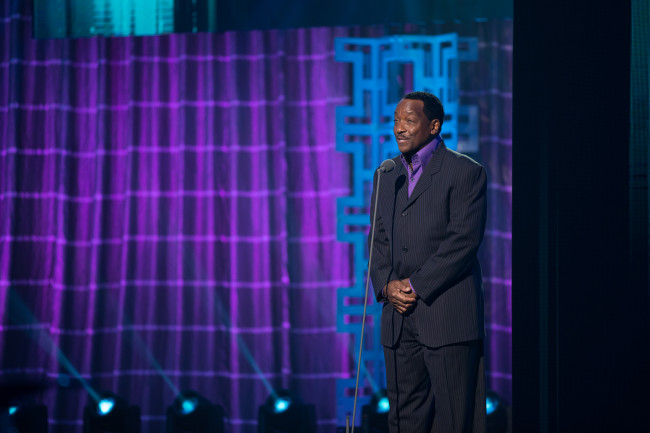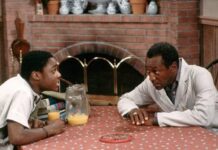

Video Soul was one of the most seminal television programs in the history of both black popular culture and American music. Hosted by veteran radio DJ Donnie Simpson, The original flagship series for the BET network curated music videos and featured countless black recording artists and musicians seated on the leather sofa for interviews.
Simpson hosted Video Soul for 14 years, quickly becoming a household name rivaling MTV VJs with his infectious smile, suave voice and green eyes. It never occurred to the 61-year-old purveyor of music clips by primarily African-American performers that he was a star himself in some respects.
Quoting verses from Elton John’s “Rocket Man,” an extremely modest Simpson says hosting Video Soul was just him going to work everyday. “It was just my job five days a week,” says Simpson during a brief interview at the National Action Network’s sixth annual Triumph Awards. “I always knew it meant something to artists. When you’re doing what you do, you’re just doing what you do (laughs). You don’t think of it in terms of pioneering.”
Originally from Detroit, Simpson, the son of a record shop owner, got his first gig in radio at age 15 with WJLB-FM. The charismatic on-air personality moved on to become a program director at Washington, D.C.’s WKYS-FM. Simpson recently went back to basics, coming out of his five-year retirement to host his self-titled weekday afternoon show on Majic 102.3 (WMMJ-FM).
Never dwelling on any of his past successes, Simpson is planning on returning to television. The 2004 BET Walk of Fame inductee is currently negotiating with TV One to develop and host a music-themed series. He admits that he misses working with the artists and crew from his tenure at BET but never considers how influential his presence on cable television was.
One validating moment for Simpson came when he met one of his biggest fans, late ESPN sportscaster Stuart Scott, who notably incorporated slang and swagger into his unprecedented style of broadcasting. Simpson remembers, “He said ‘Man, I’m freaking out right now. You’re the reason I do TV.’ To hear that from someone that accomplished is mind blowing. It’s humbling.”
Additional confirmation that cemented Simpson’s legacy came when VH-1 profiled Video Soul in a segment for the network’s documentary series, Black in the ‘80s. His interview on the nostalgic miniseries proved to be the eye opening a-ha moment. “It was the first time I ever had my work put into any kind of perspective,” says Simpson.
“To see it put into perspective was kinda cool for me. As soon as it ended, my thought was ‘How the hell am I supposed to sleep tonight? (laughs hysterically).”
Since Video Soul’s cancellation in 1997, music video blocks on television have transitioned into networks like MTV and VH-1 creating spinoff stations that air nothing but videos. The internet curates videos-at-will on platforms like YouTube and Vevo. It impresses Simpson after four decades working in media to see independent, emerging and even mainstream artists take their visual products directly to their consumers.
“It gives creative people a chance to present themselves without going through that whole greenlighting process that is Hollywood,” says Simpson. “You can take it straight to the people now. That’s gotta open it up for more creativity or more personality.”
This post was written by Christopher A. Daniel, pop cultural critic and music editor for the Burton Wire. He is also contributing writer for Urban Lux Magazine and Blues & Soul Magazine. Follow Christopher @Journalistorian on Twitter.
Follow the Burton Wire on Twitter @TheBurtonWire or Instagram.








